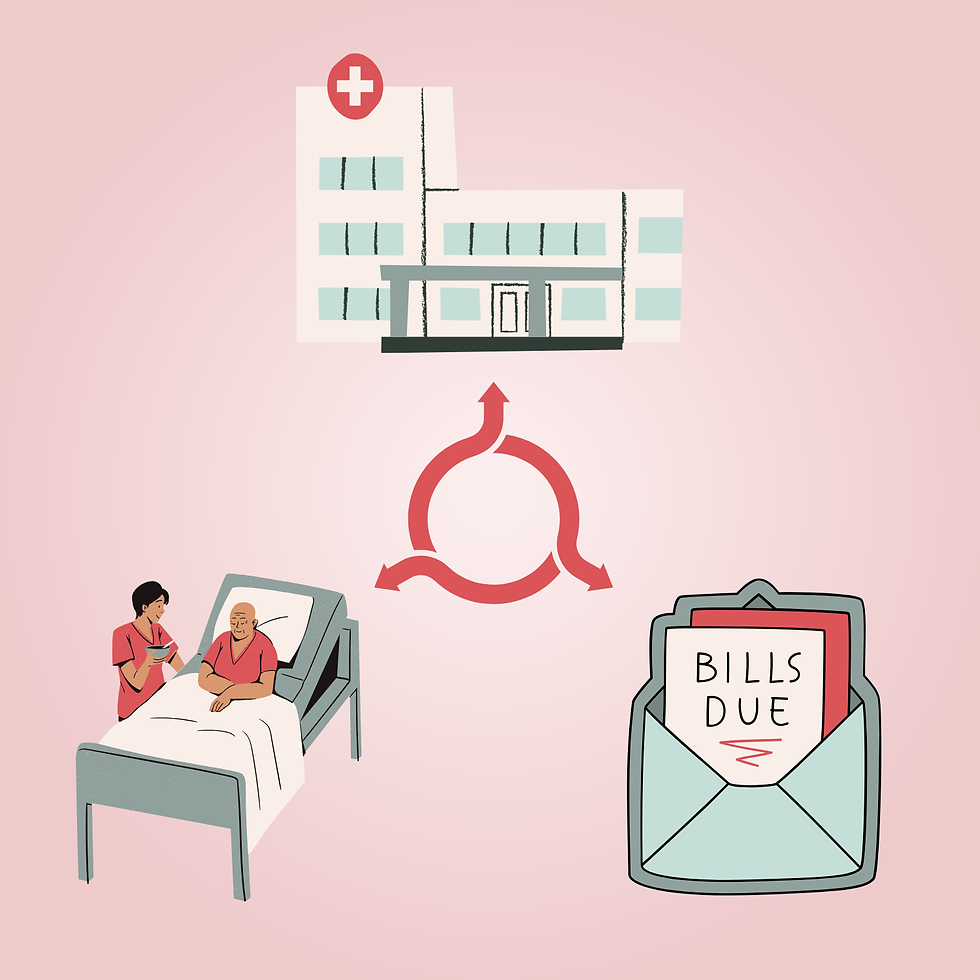The Ethics & Potential of Pharmacogenomics
- Heiley Tai
- Mar 8, 2022
- 3 min read
Prescription drugs are a vital component of treatment plans for complications and illnesses of all kinds; so much so that in surveys conducted by the CDC in 2015-2018, about half of all adults in the United States had used at least one prescription drug in the previous 30 days [1]. Treatment plans already imply some degree of individualization; medicine isn’t, and has never been, one-size-fits-all. Thus, pharmacogenomics aims to answer the question of how individual differences in the cellular mechanisms that respond to drug therapies affects the performance of those therapies.

When it comes to health, DNA matters— many diseases and illnesses have underlying genetic factors. Single nucleotide polymorphisms (SNPs) in the genetic code can decrease responsiveness to a drug. Clopidogrel is a drug that is metabolized by a specific enzyme called CYP2C19 [2]. If a mutation in an individual’s gene sequence causes this enzyme to function less efficiently than it should, then clopidogrel is also likely to not work as well as a drug therapy for that individual. Of course, there’s extensive variety in the actual dynamics of drug metabolism, but this concept explains the merit in custom-tailoring treatment plans down to the cellular level. When healthcare is as costly as it is in the United States, it’s necessary to ensure that drug therapies will actually work.
At the start of the process, patients must undergo genetic testing, which in and of itself presents some initial challenges. The cost of pharmacogenomic testing is in the ballpark of a few thousand dollars [3], which is a high initial investment for what is, in effect, a prerequisite for treatment. Private health insurance companies in particular have murky policies regarding this kind of testing [4], thus there is a sizable chance that costs may be paid out-of-pocket. This is an immediate barrier that limits the viability of this field to those who can afford to take that chance.
Even after pharmacogenomic test results are obtained, patients and providers face further ethical dilemmas stemming from the larger debate around clinical applications of genetics. Genetic discrimination becomes a problem when a patient’s private health information is shared with insurance companies who may refuse to take on the cost of a potentially extensive treatment plan, or even raise the amount that patients pay [2]. While the Genetic Information Nondiscrimination Act was passed in 2008 to limit such injustices [5], it goes to show that policies to protect patients in this regard are still very much in development.
Genetic testing also doesn’t just accomplish the goal of identifying altered drug-relevant pathways, but it may also coincidentally happen upon other illnesses or predispositions a patient may have [6]. This opens a metaphorical Pandora’s Box that stretches further than simply whether a patient is an ideal fit for a medication. If the potential for future disease is found within an individual’s genes, how can providers balance the responsibility of protecting patient privacy with the responsibility of informing that individual’s relatives of their potential risk?
Many of the risks associated with the pharmacogenomic approach to drug therapy are part of the debate around clinical and diagnostic genetics in general. While there are many uncertainties and unknowns in pharmacogenomics, it has at the very least shown some efficacy when it comes to the personalization of healthcare [7]. This is enough to cement pharmacogenomics as a worthy focus.
Edited by: Olivia Ares
Graphic Designed By: Aj Kochuba
References
[1] “FASTSTATS - Therapeutic Drug Use.” Centers for Disease Control and Prevention, Centers for Disease Control and Prevention, 20 Oct. 2021, https://www.cdc.gov/nchs/fastats/drug-use-therapeutic.htm.
[2] Marcus Silva, PharmD Candidate. “Ethical Issues in Pharmacogenomics.” Pharmacy Times, https://www.pharmacytimes.com/view/ethical-issues-in-pharmacogenomics.
[3] Groessl, Erik J., et al. “Cost-Effectiveness of a Pharmacogenetic Test to Guide Treatment for Major Depressive Disorder.” Journal of Managed Care & Specialty Pharmacy, vol. 24, no. 8, 2018, pp. 726–734., https://doi.org/10.18553/jmcp.2018.24.8.726.
[4] Park, Sharon K., et al. “Coverage of Pharmacogenetic Tests by Private Health Insurance Companies.” Journal of the American Pharmacists Association, vol. 60, no. 2, 2020, https://doi.org/10.1016/j.japh.2019.10.003.
[5] “The Genetic Information Nondiscrimination Act of 2008.” U.S. Equal Employment Opportunity Commission, https://www.eeoc.gov/statutes/genetic-information-nondiscrimination-act-2008.
[6] Erdmann, A., Rehmann-Sutter, C. & Bozzaro, C. Patients’ and professionals’ views related to ethical issues in precision medicine: a mixed research synthesis. BMC Med Ethics 22, 116 (2021). https://doi.org/10.1186/s12910-021-00682-8
[7] Hayashi, Meagan, et al. “Applications for Pharmacogenomics in Pharmacy Practice: A Scoping Review.” Research in Social and Administrative Pharmacy, 2021, https://doi.org/10.1016/j.sapharm.2021.08.009.



Comments